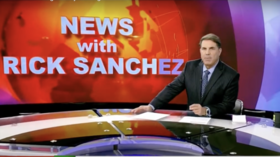Netanyahu’s ousting means no change for Palestinians, even though they are part of the reason for his political demise
Dragged down kicking and screaming, Israel’s longest serving PM has been ousted. While many Israelis are celebrating, the same can’t be said about the Palestinians whom the establishment are desperately attempting to sideline.
Replacing Likud Party leader Benjamin Netanyahu is his former right-wing ally Naftali Bennett, who will serve as prime minister of Israel for two years, preceding his coalition partner Yair Lapid, who will serve for the latter period of the new “change” coalition’s reign.
Despite attempts from the new Israeli government to focus almost purely on the economy and on uniting Israel, it was clear from the outset that foreign policy issues and the Palestinian question were not going away anytime soon. Yet, no coherent plan for the dealing with the Palestinian citizens of Israel, as well as Palestinians in the occupied territories, has been presented.
Bennett, a former Likud party member and now leader of Yamina, is a religious nationalist whose contempt for Arabs and Muslims has been made clear. Bennet once allegedly proclaimed that “I’ve killed lots of Arabs in my life and there’s no problem with that.” According to a Palestinian member of the Knesset, Ahmed Tibi, “Naftali Bennett is the man who once told me in an interview ‘we were here when you were still swinging on trees’ – he referred to Arabs as monkeys”.
Bennett has also made it clear that he is opposed to the idea of a Palestinian state, supports the construction of more illegal settlements, and will not negotiate over the issue of Jerusalem. He has even advocated for tougher responses against the illegally besieged Gaza Strip and believes that the Bible gives Israel the right to rule over the occupied West Bank. There is also no indication that Israel’s aggressive posturing towards Iran and its attacks on Syria are going to end.
It is likely that the Biden administration is relieved by the change in Israeli leadership; if anything, that would be down to Netanyahu’s close relationship to former US President Donald Trump. Trump’s ‘Deal of the Century’ strategy undermined regional American allies such as Jordan and Egypt, which the US seems eager to change. It is likely that Biden will seek a status quo strategy of keeping Israel quiet, and the absence of the strongman Netanyahu may help achieve this.
How Palestinians Factored Into Netanyahu’s Ousting
As if they no longer exist, it is almost completely ignored that last month an 11-day battle with Gaza and a Palestinian uprising factored greatly into Netanyahu’s political demise.
Netanyahu had aligned himself with settler extremists in Jerusalem and allowed for the repeated storming of the al-Aqsa Mosque compound, during Ramadan, which eventually led to an uprising inside Israel and the occupied territories. Israel’s military were not able to successfully combat the Palestinian armed groups in Gaza and shyed away from committing a ground invasion.
When the ceasefire between Gaza’s armed factions and Israel was declared, Palestinians everywhere poured out onto the streets in celebration of their victory over Israel. Part of the victory for Palestinians was that Netanyahu – who had hoped the tensions would have rallied support for himself to go to a fifth round of elections or form a coalition – had in fact failed to do so and instead he came off as weak. Even Bezalel Smotrich of the Religious Zionism slate, the party which helped lead the former premier into escalation with the Palestinians, had publicly voiced his consideration for a change in leadership.
Although it is largely forgotten now, the very reason why the former PM was originally unable to form a coalition government in the 2019 elections was largely down to the split between Netanyahu himself and his departed ally Avigdor Lieberman. The disagreements between the two were not limited to one issue; however, the real tensions truly began because of Gaza’s armed groups.
Also on rt.com Anti-Netanyahu protesters celebrate ‘victory’ outside PM’s residence on eve of coalition vote to remove him from powerIn November of 2018, the Israeli military had run a botched raid in Gaza’s southern city of Khan Yunis, resulting in the killing of an Israeli lieutenant colonel and the embarrassment of the Israeli military. At the time Avigdor Lieberman was the defence minister under Netanyahu and resigned from his position after his then prime minister would not launch a war, having suffered such a strategic failure in the besieged coastal enclave.
Another significant shift has been that for the first time ever a Palestinian-Israeli (or Arab-Israeli) political party has been included in an Israeli coalition government. Mansour Abbas’ Ra’am Party, although being the only coalition party not given a minister position, does possess some power and seeks to push for policy change specifically to benefit Bedouins in al-Naqab (the Negev). After last month’s historic general strike and uprising by Palestinian citizens of Israel, described by the Israeli mayor of lod as having created a “civil war” in the city, it is clear that the Israeli government is having to play damage control in order to avoid another similar occurrence.
What Now For “Bibi”?
Netanyahu is now seated as the leader of the Israeli opposition and it looks likely that Likud may look to unseat him as Party leader. Bennett will undoubtedly try to put Netanyahu out of politics once and for all, which could mean the introduction of bills discussed in May which would bar criminal defendants from holding public office.
The anti-Netanyahu coalition is fragile and could still break apart at any moment, plunging Israel into the unknown again, which is likely what Netanyahu is betting on. The former prime minister has played the game of accusing Bennett, along with other far-right figures such as Avigdor Lieberman and Gideon Saar, of selling out and forming a left-wing government.
The new coalition is no left-wing government; however, it does include parties like Meretz and Labour, which sit on the opposite end of the Israeli political spectrum to the likes of Bennett’s Yamina. Perhaps the only thing the different parties of the coalition agree upon is that Netanyahu should no longer be in power.
For now, Netanyahu no longer calls himself prime minister of Israel, but there’s a good chance that this could quickly change.
Think your friends would be interested? Share this story!
The statements, views and opinions expressed in this column are solely those of the author and do not necessarily represent those of RT.














